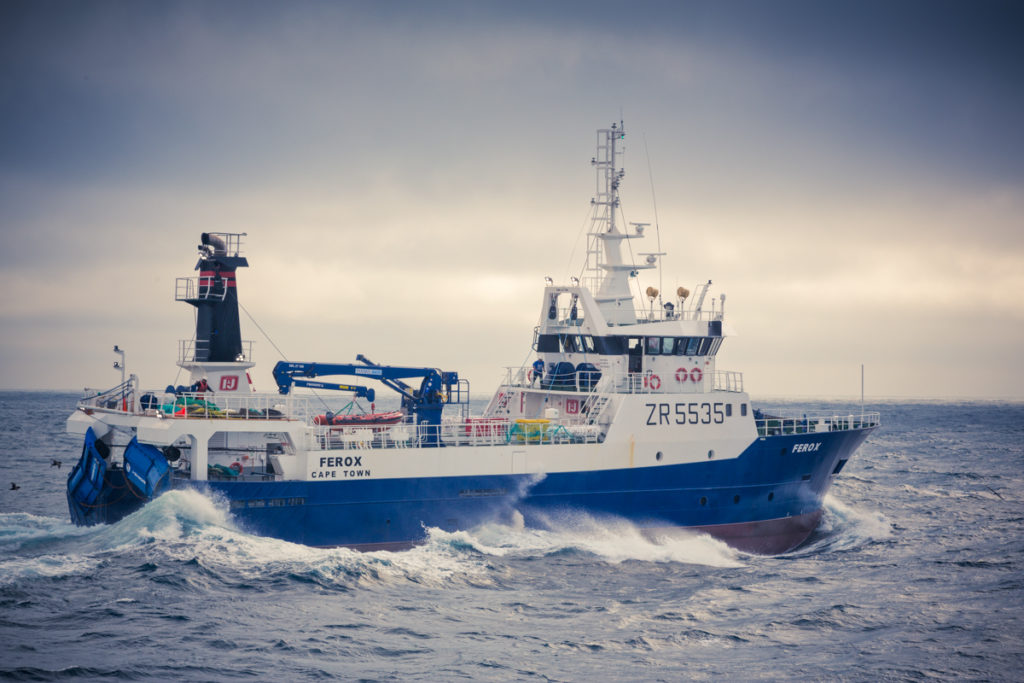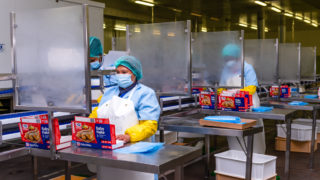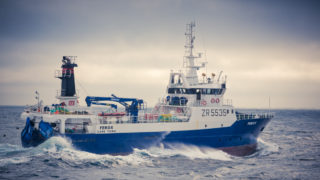A Saldanha Bay engineering company that employed five people in 2007, has grown into a multifaceted organisation with 72 employees thanks to its association with the hake deep-sea trawling industry, one of South Africa’s leading agri-industries. A second company has developed into one of the largest fully contained load transporters in Cape Town, with a fleet of over 90 trucks, semi-trailers and refrigerated vehicles.
The exponential growth and diversification of black-owned MCK Engineering and Moosa’s Enterprises is documented in the study “The impact of the hake deep sea trawl fishery on small, medium and micro enterprises”, which was released in Cape Town today. Conducted by independent economists Genesis Analytics, the study shows that the sustainability and international competitiveness of the hake deep-sea trawl fishery are vitally important to 1 041 small, medium and micro enterprises (SMMEs) that provide goods and services to the industry.
“The National Development Plan identifies SMMEs as the most likely source for job creation in South Africa, and places particular emphasis on SMMEs that provide services to larger firms,” said Felix Ratheb, chief executive of Sea Harvest and chairman of the South African Deep-Sea Trawling Industry Association (SADSTIA). “This is exactly what this study reveals. Our industry’s support of SMMEs is creating value and jobs, often in rural and semi-rural areas where economic opportunities are scarce.”
The hake deep-sea trawling industry spent a total of R624.4 million with SMMEs in 2019, with most of this spend directed towards businesses in the Western and Eastern Cape provinces, including non-metropolitan areas like Gansbaai, Mossel Bay, Saldanha Bay, St Helena Bay and Veldrif.
A significant proportion (51%) of the R624.4 million the industry spends annually with SMMEs is directed at black- and female-owned businesses.
At 39%, engineering services account for the industry’s largest expenditure with SMMEs. The second largest category of products and services supplied by SMMEs is fish processing, which includes cold storage, the packaging of fish products and the provision of ingredients for the creation of value-added seafood. Mechanical services, including the repair, maintenance and refurbishment of fishing vessels and processing facilities, is another important category of goods and services.
Ratheb is hopeful that the information presented in the latest study by Genesis Analytics will contribute to the development of precise fishery-specific policies ahead of the Fishing Rights Allocation Process (FRAP) that is scheduled to take place in 2021. The Department of Environment, Forestry & Fisheries is preparing to allocate rights to 12 commercial fisheries in 2021. Included in the 12 fisheries is the hake deep-sea trawl fishery, which is by far South Africa’s most valuable fishery. It contributes an estimated R6.7 billion to the South African economy each year, and provides 7 300 direct jobs and an estimated 29 200 indirect jobs.
“What this study shows is that the stability and success of the hake deep-sea trawling industry is vitally important to SMMEs across the value chain. Securing the viability of SMMEs associated with the hake deep-sea trawl fishery is a better economic choice than restructuring the fishery to accommodate large numbers of new rights holders,” asserts Ratheb.
“The impact of the hake deep sea trawl fishery on small, medium and micro enterprises” is the latest in a series of studies that have advised against the fragmentation of the hake deep-sea fishery in FRAP 2021. Fragmentation means taking substantial tonnage away from established companies in order to allocate it to many small new entrants. The studies have found that fragmentation will materially reduce the socio-economic contribution of the HDST industry for little or no gain in transformation. The hake deep-sea trawling industry is 66.6% black-owned and the top three companies active in the fishery are level one contributors to black economic empowerment.
“The policies that underlie FRAP 2021 need to be carefully formulated and aligned to the Government’s priorities of preserving and creating jobs, encouraging investment and promoting inclusive growth,” concludes Ratheb.
ISSUED BY THE SOUTH AFRICAN DEEP-SEA TRAWLING INDUSTRY ASSOCIATION
20 January 2021
For more information, please contact:
Felix Ratheb, chairman of SADSTIA: [email protected] or 082 496 3419
Claire Ward, SADSTIA communications: [email protected] or 083 290 7995
Brandstories Disclaimer:
Brandstories is not liable for the contents of the information published on this platform. The information which subscribers publish on this website is for general information purposes only and Brandstories facilitates the ability for viewers and subscribers to access this platform. Subscribers who publish their content on Brandstories are held responsible for their own content. This includes ensuring that it is factually accurate, grammatically correct, free of spelling errors, and does not contain unsavoury content that could result in legal action. In the case of linguistic translations, the onus is on the client to ensure that the translation is accurate. In no event does Brandstories make representations or warranties of any kind, expressed or implied about the completeness, accuracy, reliability, suitability or availability with respect to the information supplied and published. This website includes links to other websites, including third party websites. Brandstories does not recommend, endorse or support any views that are held by subscribers publishing information, and within these links provided. Furthermore, Brandstories does not have control over the nature, contents and availability of information contained on these sites. Any form of reliance readers and consumers may place on information published on Brandstories is strictly at their own risk. Brandstories makes every effort to ensure that the website is up and running smoothly at all times, however Brandstories does not take responsibility for, and will not be held liable for times when the website is temporarily unavailable due to technical glitches that are beyond our control.




